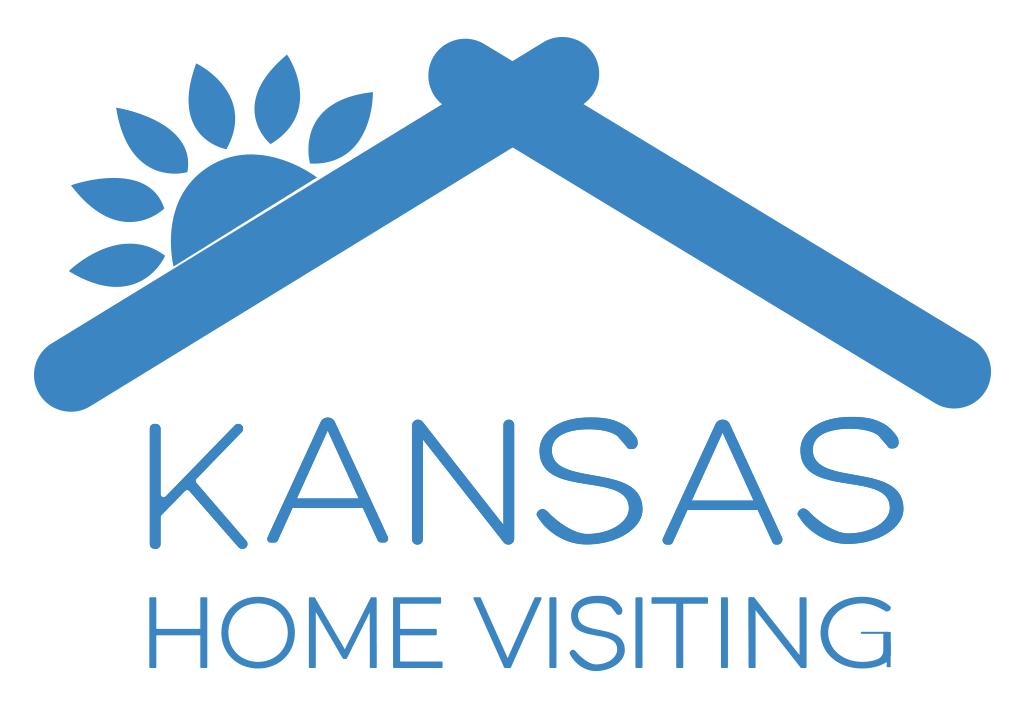
Home Visitors must complete orientation within 3 months (90 days) of hire/grant award, depending on previous experience. A checklist should record progress toward completion and be maintained as a part of the local personnel file. Documentation of all orientation steps should be provided upon request of the KDHE MCH Program Consultant during monitoring visits.
Requirements Before Service
Prior to conducting visits with families, a home visitor will:
- Review the local agency MCH aid to local application to better understand the services, partnerships, and home visiting plan submitted to KDHE
- Review local policies and procedures regarding home visiting
- Review MCH Manual
- Complete Basic Home Visitor Online Training *See Details Below in Initial Training
- Understand education, information, and resources/materials shared during visits
- Receive orientation to community partners, services, and resources
- Shadow 3 visits conducted by an experienced home visitor (to be determined by supervisor and KDHE MCH program consultant)
- Conduct at least 1 visit accompanied by the Home Visiting Program Supervisor
Initial Training
All program staff must complete the Kansas Basic Home Visitation Training, developed in partnership between KDHE and the Kansas Head Start Association. The training includes two parts – online and face to face.
Online Training (Part 1), KS-TRAIN course ID# 1043474
- Must be completed within 30 days of hire AND prior to providing services
- Required for all regardless of profession/credential because content is specific to home visiting services
Also required before moving on to Part 2:
Abuse and Neglect, KS-TRAIN course ID# 1043466
HIPAA Awareness Module 1, KS-TRAIN course ID# 1047429
Healthcare or Public Health Workforce should complete:
HIPAA: Allowable Disclosures and Safeguards Module 2, KS-TRAIN course ID# 1072478
HIPAA: Right to Access and Documentation Module 3, KS-TRAIN course ID# 1072486
Face to Face Training (Part 2)
- Must be completed (Level 1, 1 ½ days) within nine (9) months of hire
- Does not need to be completed prior to conducting home visits
- Only offered once every 6 to 9 months depending on need/potential attendance. If the training is not offered within the first 9 months of hire, the home visitor must notify the KDHE MCH Program Contact and plan to attend a future scheduled training.
- Topics covered include: Home visiting models, best practices and beliefs, confidentiality, taking care of yourself, dealing with stress, role of the home visitor, trust and respect, tools, listening skills, power of words, negative consequence of rescuer, boundaries, home visitor safety, understanding cultures, poverty, family in community and community resources, documentation.
- Must be completed within six (6) months of hire
- Home Visiting 101: This module is an introduction into home visiting and its importance for children, parents and families.
- Home Visiting 102: In this module the Home Visitor will explore the daily activities of a family support professional and describe skills that can improve a family support professional’s effectiveness.
- Home Visiting 103: This module describes qualities and behaviors that are essential to family support professionals.
- Every home visitor is required to keep updated on their certification on MHFA.
- The certification is valid for three years.
- Local agencies may build training fees associated with MHFA in the MCH grant budget.
Fall Regional Home Visiting Training
All Home Visitors are required to attend this annual training administered by KDHE.
Other Continuing Education Options
- A half day Level 2 of the Face to Face Training above is available if MCH Home Visitors would like to attend. It is designed for more intensive home visiting programs, such as Parents as Teachers or Early Head Start, but has valuable topics including: Ethical principles of home visitation, family systems, building a healthy self-reliance and interdependence, empowerment model, six principles of empowerment assessment, home visitor professional development
- Consider attending quality conferences and events such as the Governor’s Public Health Conference, Governor’s Conference for Prevention of Child Abuse and Neglect, and Kansas Public Health Association Conference.
- KS-TRAIN. KS-TRAIN maintains records of all trainings completed through that site.
- Public Health Connections
- Institute for the Advancement of Family Support Professionals
- The MCH Navigator is an online learning portal for MCH professionals funded by the Federal Maternal and Child Health Bureau, which provides free foundational and essential training/education for those working to improve the health of women, infants, and families. NOTE: The MCH Navigator does not provide certificates or records of completion, so it is important to document the course and date completed OR capture a screen shot of the completion page for each course.
